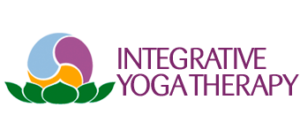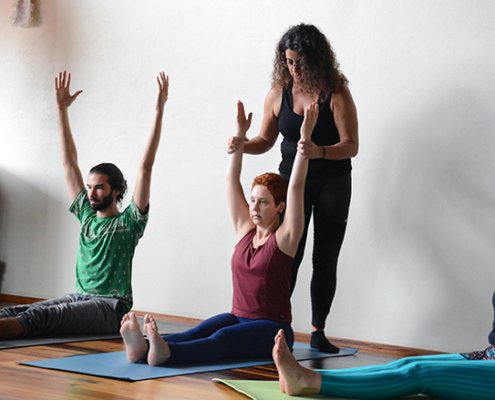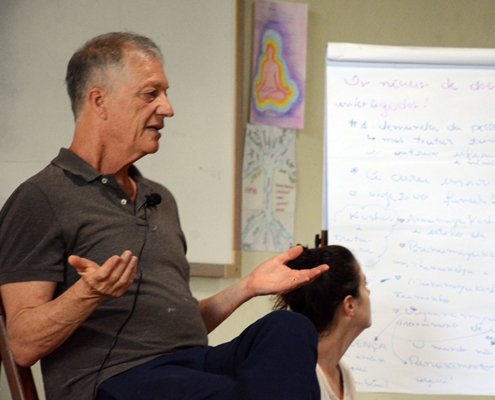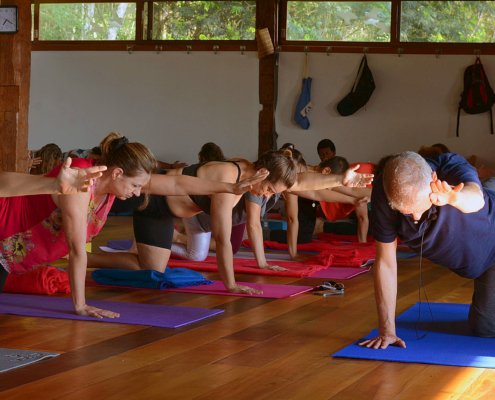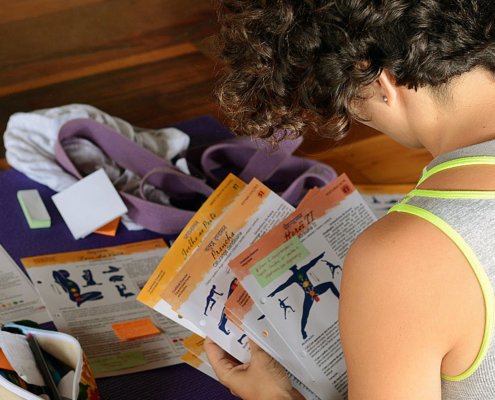Teacher Training Programs
You can offer the 200-hour Integrative Yoga Teacher Training program as an Affiliate.
THE ADVANTAGES of THIS UNIQUE Teacher Training Program are:
- Your Students will be Accredited by the Yoga Alliance at the 200 Hour Level
Integrative Yoga Therapy is a charter member of the Yoga Alliance since 1999 with over 3,000 graduates. When you become an affiliate and use our method and materials, your students are automatically approved by the Yoga Alliance.
- A Complete 300-Page Yoga Teacher Training Manual
The Integrative Yoga Teacher Training Manual covers all aspects of Yoga teaching theory and practice, including asana, pranayama, mudra, bandha, Yoga nidra, and meditation. The Integrative Yoga teaching methodology uses a unique 10-step process to clarify all the steps in putting together a Yoga class. All aspects of the psychology and philosophy of Yoga are covered in detail, including the 5 Koshas, Chakras, Yoga Sutras of Patanjali and Ayurveda in relation to Yoga practice. The teacher trainer will receive a PDF of the manual and make the appropriate number of copies for their teacher training group.
- Each Student Receives the Integrative Yoga Teaching Materials
The Integrative Yoga teaching materials are included for each student. This is our Deluxe Combo comprised of 1 Yoga Toolbox for Teachers and Students + 1 Toolbox Cards + 1 Mudras for Healing and Transformation + 1 Mudras Cards + 1 FREE Chakra Card Set of 7 Chakra Cards. The Yoga Toolbox for Teaches and Students come with an app with over 1,000 videos and an e-book. This is a $ 186.75 value.
- We Promote your Course through our Social Media Channels
Integrative Yoga maintains an active presence on Instagram, Facebook, Youtube and an internet mailing list of 10,000 subscriptions. Your course will be promoted in the six month prior to your start date. We will also post your photos and videos of the course on our social media as you send them.
- You Receive an online Master Class with Joseph Le Page
Joseph Le Page is the founder of Integrative Yoga and offers a wide variety of workshops. Some of his special focus areas are mudras and Yoga Sutras of Patanjali. As an Affiliate, Joseph will present a two-hour workshop on a theme of your choice for your group.
WHAT MAKES INTEGRATIVE YOGA UNIQUE:
- Individualized Teaching and Learning
We believe that each Yoga teacher should receive comprehensive and in-depth instruction in the wider vision of Yoga as well as detailed experiential instruction/practice in the tools and techniques of Yoga. With this foundation, the teacher is given a range of possibilities for the creative teaching of Yoga from which they can evolve their own unique style and approach based on their vision of Yoga and the solid foundation provided by the Integrative Yoga Teacher Training program.
- Experiential Approach to Education
The Integrative Yoga Teacher Training program focuses on creative, experiential learning. All the key concepts of teaching such as class design, sequencing, pacing, use of voice and instructions, and hands-on adjustments are presented in a concise and clear format that is creative, comprehensive and engaging.
- Take Your Teaching Beyond the Yoga Classroom
The Integrative Yoga Teacher Training individualized experiential approach provides a format in which new Yoga teachers can focus on their specific interest groups such as medical settings, education, recovery and business as well as Yoga classes for the general public at gentle, intermediate and vigorous levels.
- A Multidimensional Approach to Yoga Postures with Extensive Support
The Integrative Yoga Teacher Training program are supported by an extensive array of materials including the Yoga Teacher Toolbox with over 1,000 videos on the Yoga Toolbox App. The Toolbox and App provide a multidimensional approach to the asanas with a precise and in-depth understanding of how asanas work at the physical, energetic, emotional, and spiritual levels, and how to modify them for individual needs.
- Understanding the Benefits of Yoga for Optimal Health
Anatomy and physiology are taught in an experiential format through the postures so that teachers learn to demonstrate and communicate the benefits of yoga in the context of the poses.
- Interactive Psychology and Philosophy of Yoga
The main aspects of the psychology and philosophy of Yoga are taught in a way that is clear, well-organized and experiential with an understanding of how Yoga philosophy themes such as the chakras and the five koshas, can be integrated into your teaching.
- Creative, Student Centered Education
Through the Integrative Yoga Teacher Training, learn to teach Yoga classes that are exceptional and creative, that develop a theme from start to finish; classes that involve your student at every level of their being and leave them with the complete experience of integration which is Yoga.
- Explore the Deeper Practices of Yoga
Through this training, you will also explore the deeper practices of pranayama, mudras, bandhas, chakras, meditation, Yoga nidra, and pranic healing and how to incorporate these into your yoga class.
cost of the integrative yoga afFiliate program:
The cost is US$399 per student which includes Yoga Alliance accreditation, the Integrative Yoga Teacher Training manual, the Deluxe Toolbox Combo and the master class with Joseph Le Page for the group, and Social Media Promotion for your course prepared for publication by you. The minimum number of students is six.
For more information, contact iytproducts@gmail.com.
